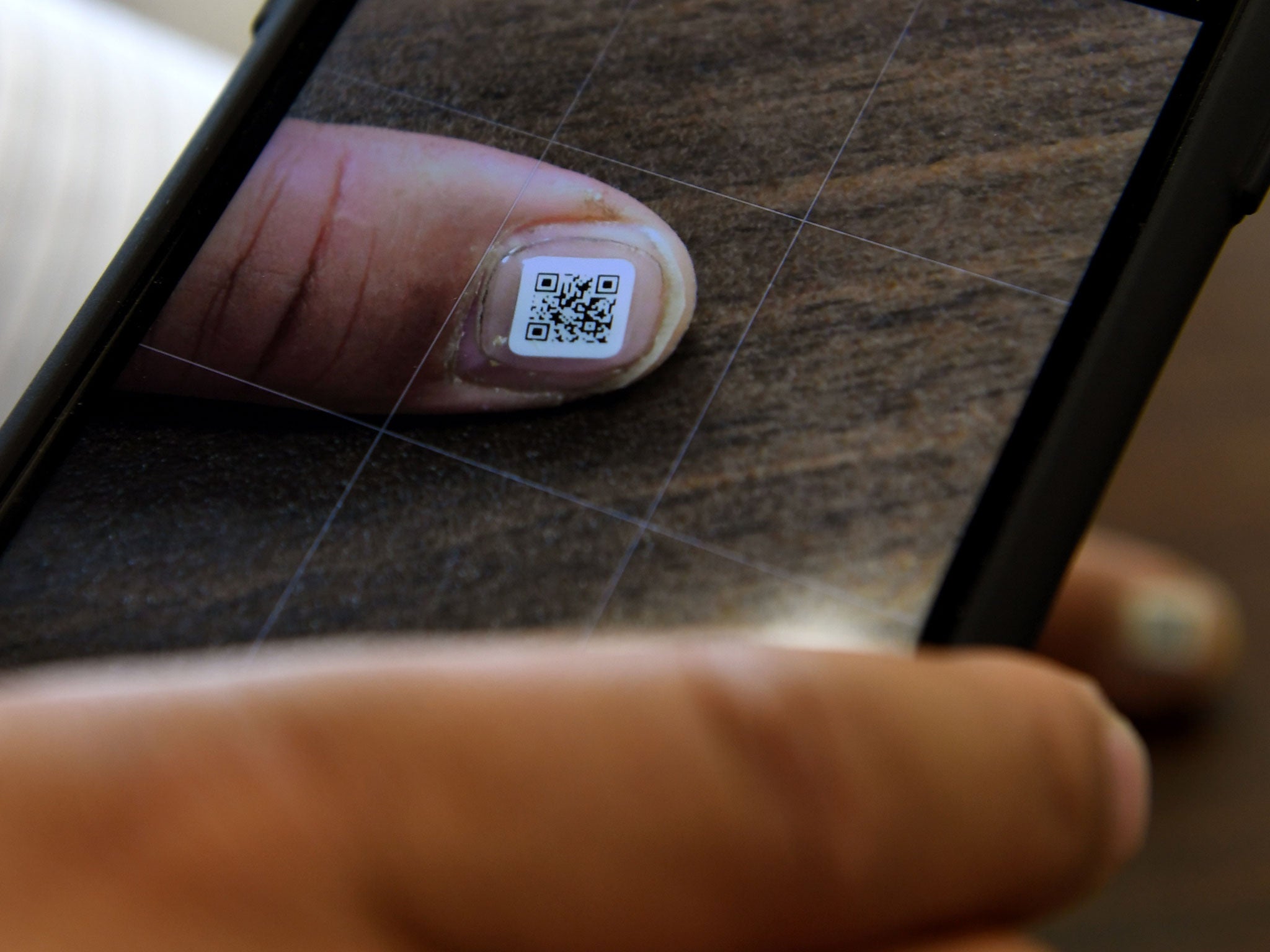Japanese city keeps track of dementia patients with QR code nail stickers
Japan expects the elderly to make up 40 per cent of its population by 2060

Your support helps us to tell the story
From reproductive rights to climate change to Big Tech, The Independent is on the ground when the story is developing. Whether it's investigating the financials of Elon Musk's pro-Trump PAC or producing our latest documentary, 'The A Word', which shines a light on the American women fighting for reproductive rights, we know how important it is to parse out the facts from the messaging.
At such a critical moment in US history, we need reporters on the ground. Your donation allows us to keep sending journalists to speak to both sides of the story.
The Independent is trusted by Americans across the entire political spectrum. And unlike many other quality news outlets, we choose not to lock Americans out of our reporting and analysis with paywalls. We believe quality journalism should be available to everyone, paid for by those who can afford it.
Your support makes all the difference.A city in Japan has begun tagging people who have dementia with QR codes that can be scanned by authorities if they get lost.
A company in Iruma, north of Tokyo, developed tiny nail stickers, each of which carries a unique identity number to help concerned families find missing loved ones, according to the city's social welfare office.
The adhesive QR-coded seals for nails, part of a free service launched this month and a first in Japan, measure just one centimetre in size, AFP reported.
“Being able to attach the seals on nails is a great advantage,” a city worker said.
“There are already ID stickers for clothes or shoes but dementia patients are not always wearing those items.”
If an elderly person becomes disorientated, police will find the local city hall, its telephone number and the wearer's ID all embedded in the QR code.
The chips remain attached for an average of two weeks, even if they get wet, the official said, citing recent trials.
Japan is grappling with a rapidly ageing population with senior citizens expected to make up 40 per cent of the population by about 2060.
Last month, Japanese police started offering noodle discounts at local restaurants to elderly citizens who agreed to hand in their driving licences.
The offer followed a series of deadly accidents involving elderly drivers - a growing problem in a country where 4.8 million people aged 75 or older hold a licence.
Join our commenting forum
Join thought-provoking conversations, follow other Independent readers and see their replies
Comments